Liam Blvck (@theblvckmambatattoo) crafts contemporary blackwork tattoos at Bebop Ink in Vancouver, Canada. Liam combines their heritage of Chinese and European culture into dark, fantastical artworks which straddle the line between the above and the below, much like the lines Liam tells us they have existed between throughout their career and life…
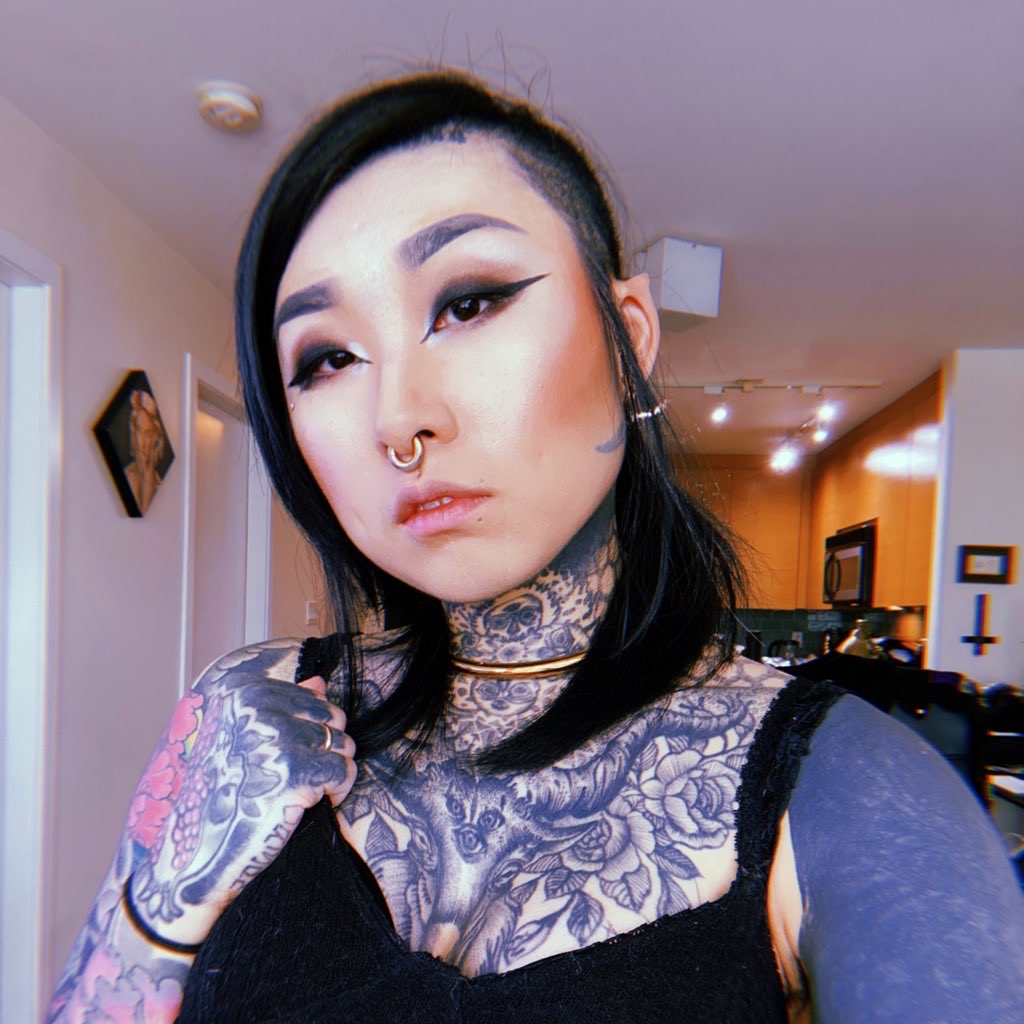
What inspired you to become a tattoo artist? Did you complete an apprenticeship, if so what was this like? I’ve been fascinated by tattoos since I was young when I saw all of my favourite band members covered in tattoos, it really intrigued me. I remember thinking “can I just wear my favourite art on my skin forever?”
I was the only arty child in my family, and my family thought I would pass that phase as I got older, but I didn’t. I didn’t really think about being a tattooer until I was 16. When it really struck me how I was extremely into body modification and that I would love to do anything related to art, but at the same time I’m wasn’t interested in just painting on a canvas and selling my art in a gallery. After high school, I ended up going to art school which really reinforced the idea of becoming a tattooer. It took me years to find a proper apprenticeship, but I managed to find one at a street shop.
Luckily my mentor was willing to guide me through the process, even though it was a learning curve for both of us. I was his first apprentice ever. Most of the people who worked there were apprenticed under another boss, and I was the exception which kind of made me the black sheep. I was taken through extreme ups and downs when it came to my learning, because I wasn’t taught the way my boss was as an apprentice. I felt like I needed to learn faster and work harder to prove myself.
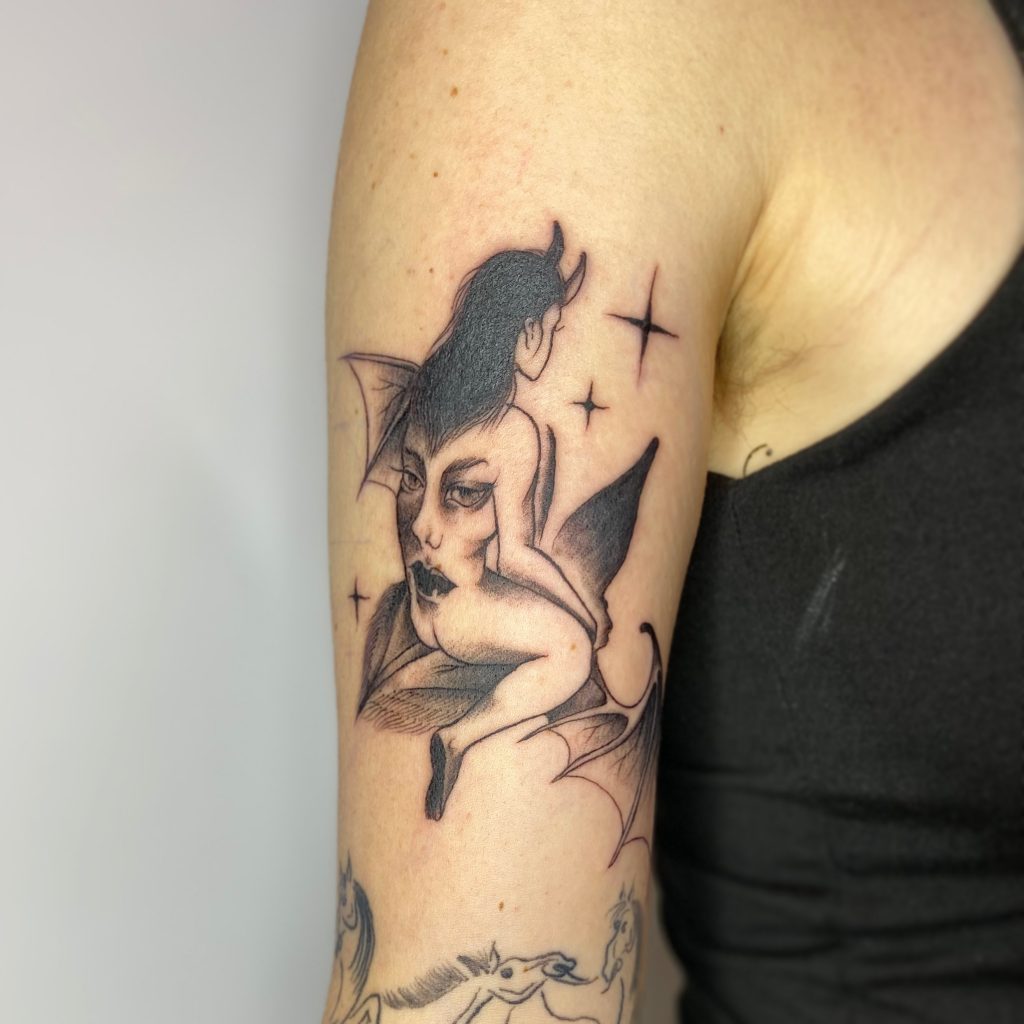
Can you tell us about your own tattoos, and the process behind these – how do you settle on a design or choose an artist? I’ve collected a handful of tattoos from different artists around the world; each of the pieces represent my growth as a person, and what I was going through at that time. Most of the tattooers I find are from tattoo magazines I’ve purchase, word of mouth, tattoo conventions and artists of the late 90s/early 2000-esque from a website hosted on Angelfire. I was on more of a scavenger hunt for tattoos back then, instead of just going on Instagram like you do now.
I used to believe every tattoo had to have a meaning in order to get it permanently on my body, and I was told if they didn’t I’d regret it for the rest of my life. Surprisingly, some of my most meaningful tattoos have now been covered. The older we are, it seems that we look back on things and the feelings we had have changed. Nothing stays the same forever, every day we grow as a person. I came to the realisation that it’s okay to just simply appreciate something in the moment, overthinking it would make things complicated.
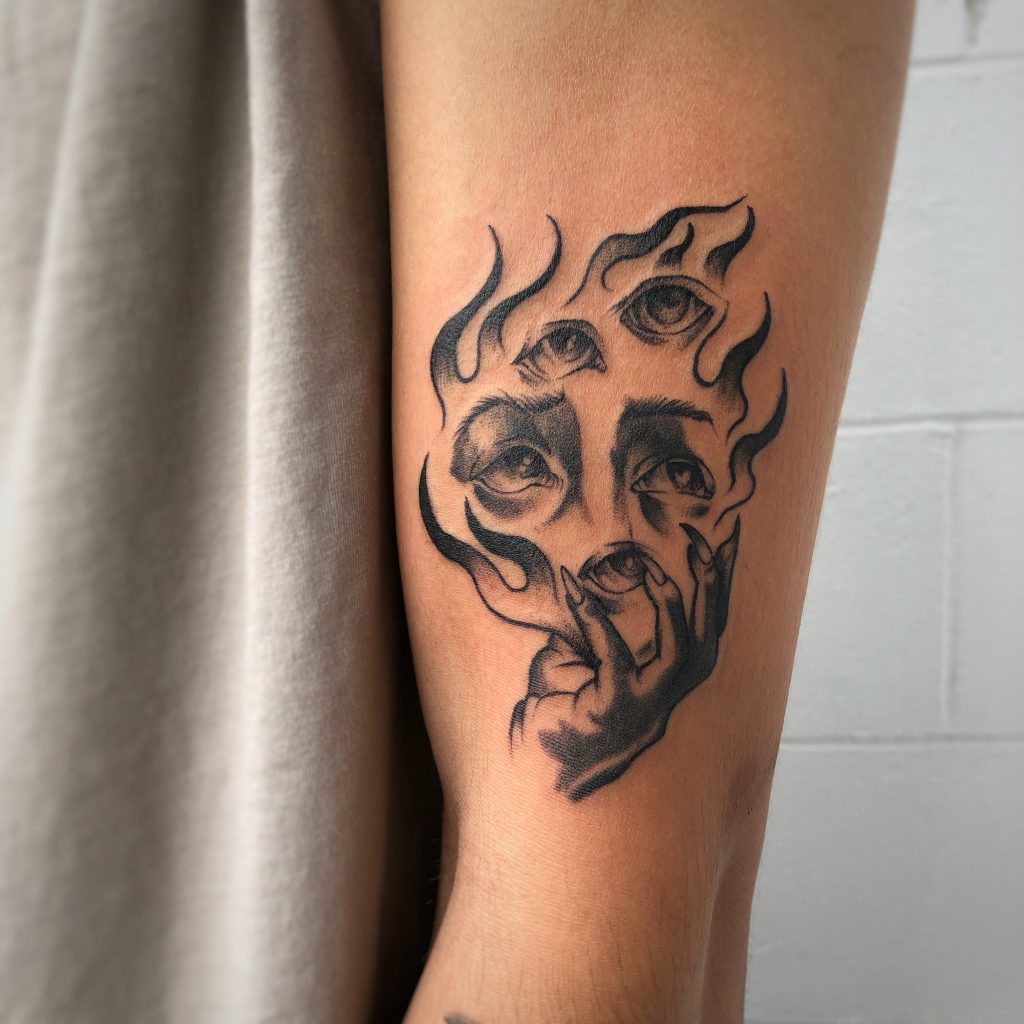
Most of my tattoos at this point don’t have any meaning, rather I loved the work the tattooer had put out. I simply want what they’re good at, not just the styles, but the subject matters they’re interested in too.
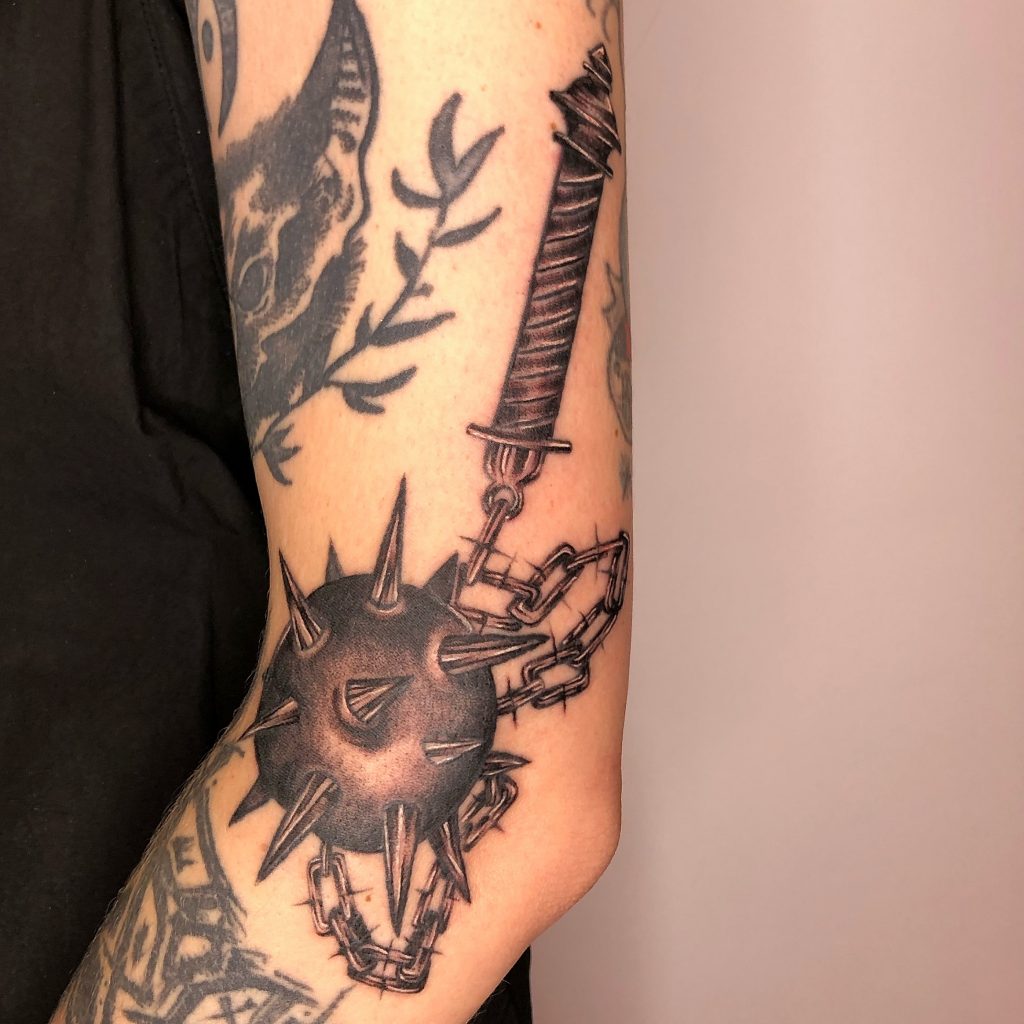
Do you have a favourite tattoo either on your own body or one you have created? Every tattoo I’ve created I’ve loved in different ways, that’s pretty much asking someone to pick their favourite children!
But I would say my favourite tattoo on my own body would be my black-out arm. It was a cover up of a sleeve I’ve got when I was between 18 and 20. It showed how much I had changed as a person, and I realise back then I was still exploring my self identity, as a woman at that time, and as a non-white. Underneath layers and layers of black is a super colourful sleeve that even had an owl with neon pink wings! The black-out took me two to two and a half years to finish, each layer was done by a different coworker that I trusted. The experience of a black-out arm is so different than that of getting a design, it’s a different level of commitment, and it’s something that’s hard to describe until you’ve experienced it on your own.
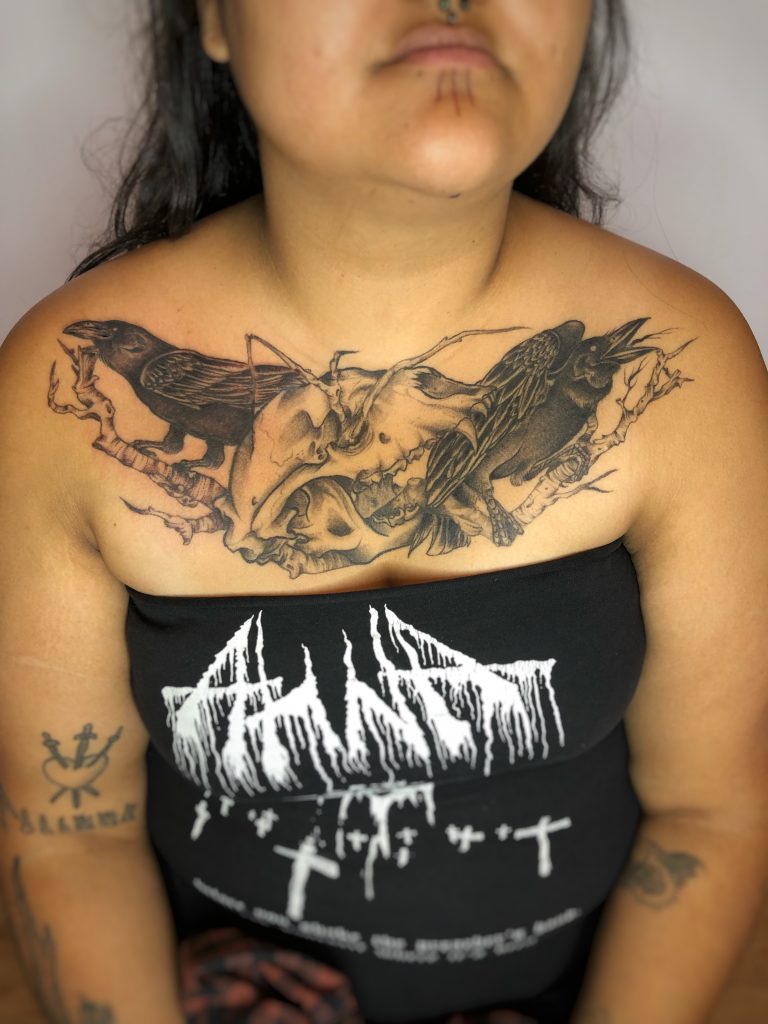
How would you describe your work? Do you think your experiences have shaped the tattoos you create? Although I was born in Canada, the majority of my childhood was spent in Hong Kong. Hong Kong was colonised by the UK at that time and so I was exposed to European culture along with my own people’s culture. European art was always my favourite because I’m obsessed with how humans can achieve such levels of details in their craft or artwork. Also I was into heavier music and often old European art would be featured on album art and merch.
My work is a fine line between European-esque art, and my life experiences of living on the line between Western and Chinese culture – my identity, my skin, gender, mental health collides with European occult imagery. It’s abstract and complicated.
What kinds of tattoos do you love to do, what designs get you excited? Is there anything you’d like to create or a particular concept you’d like to explore? I would like to continue with the occult aesthetic in my work, but take it more into a surrealism direction. Loving what you do and taking it to another level is the truest growth of oneself.
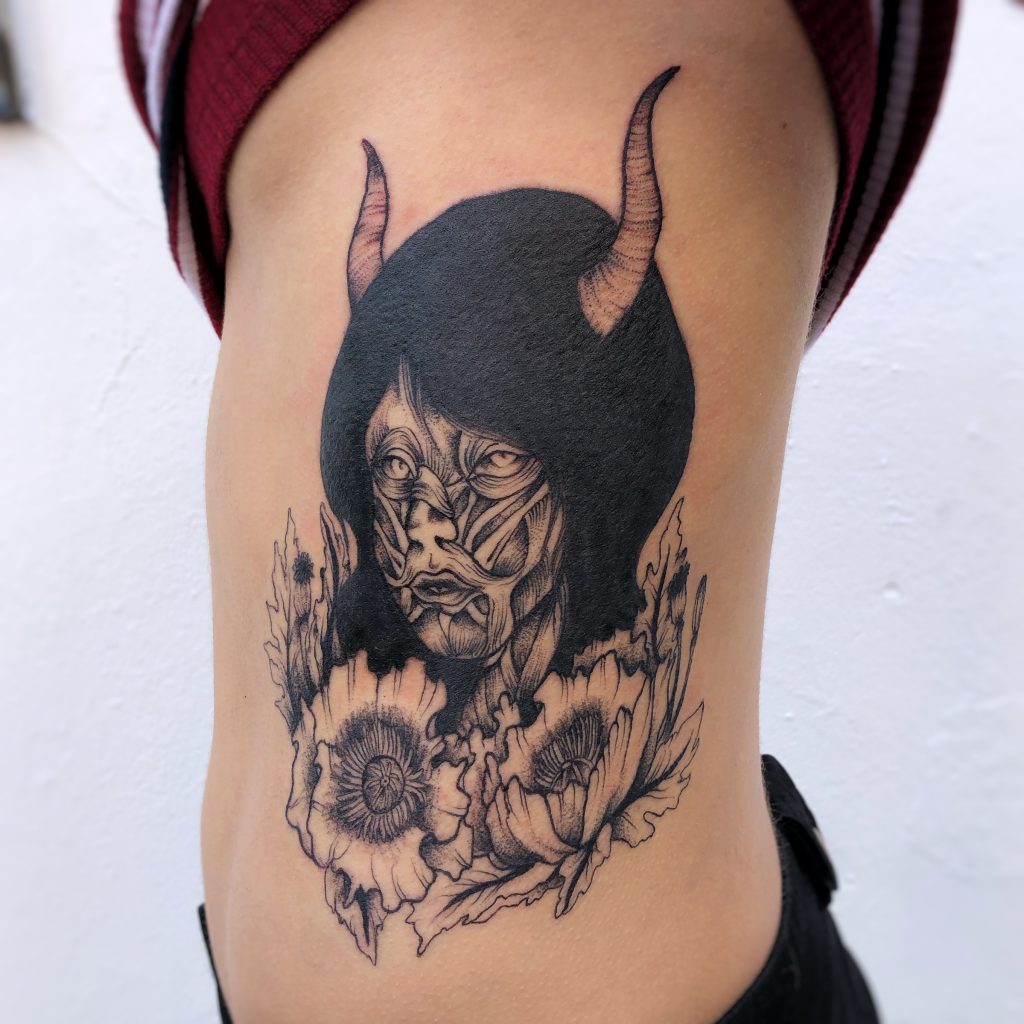
How would you describe your experience as a queer tattooer in the tattoo industry? Does this influence the spaces you tattoo in? I started out as a cis woman in the industry and I experienced the struggle of being part of the boy’s club. I still notice how I get treated differently compared to white colleagues, and often I get the harsh end of it all. Even the clientele at the beginning of my career treated me poorly because most of the folks that came to me did so because I’m not white, they assumed that they could get a deal on the tattoo they wanted.
I also have experienced male tattooers putting me into uncomfortable situations, such as commenting on women’s appearances, wanting to meet me outside of the workspace for a “consultation” and when I’ve gotten a tattoo from them their arm is positioned in a questionable area.
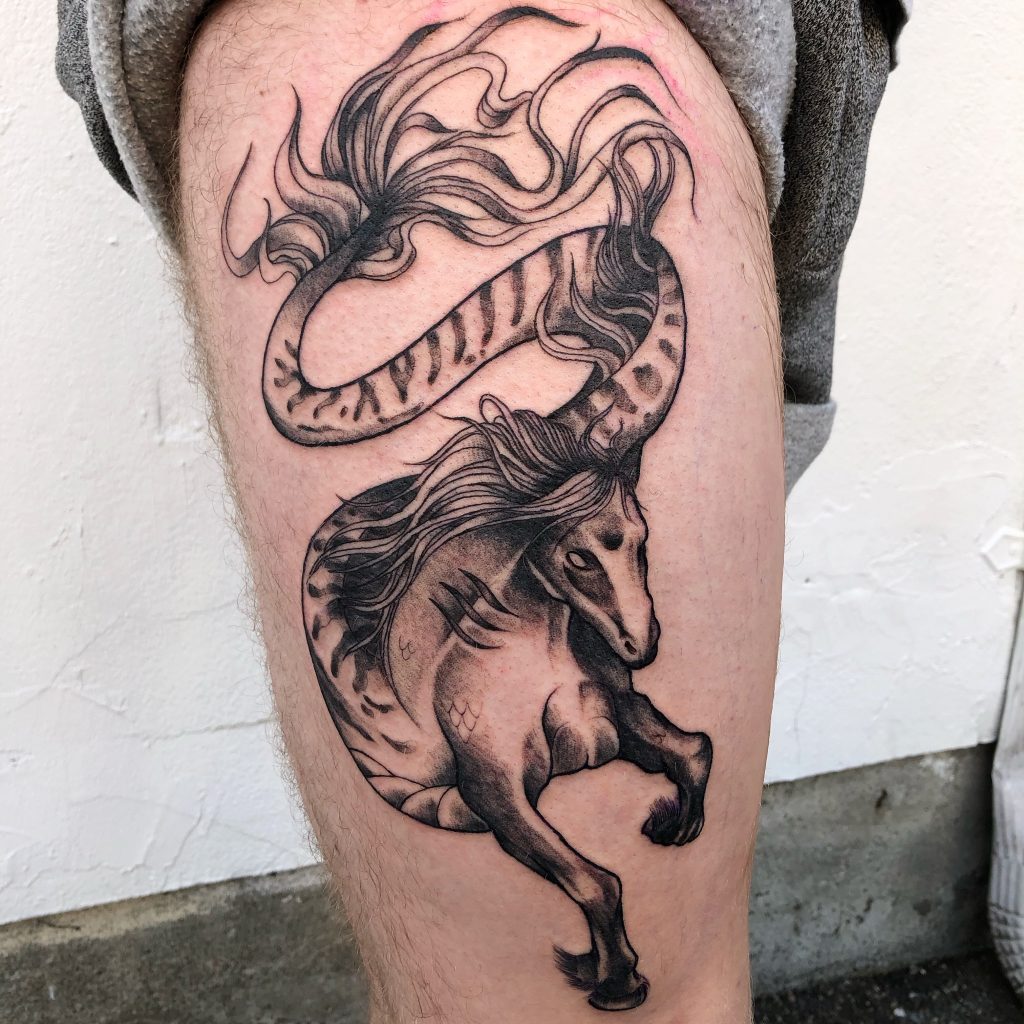
When I realised that I’m non-binary, and started to dress more queer it was another segregation on top of what I had already experienced. I feel sometimes that the community itself questions my queerness and my right to the space because I’m married to a cis man and therefore I’m not queer and non-binary enough. I was still treated as a cis woman, and my chosen name threw people off and some of them got a bit uncomfortable when they had shown up to their consultation and were expecting to get tattooed by a male tattooer.
All of these experiences, have shaped me. I want to tattoo in a queer friendly safe space where all bodies, race, genders are welcome. Both tattooers and clients give so much trust to each other and vulnerability, in this space judgement and hate is not tolerated. Getting a tattoo shouldn’t be scary and you shouldn’t leave with a traumatic experience.
I’ve read that you’ve explored your craft in a lot of different countries is there a place or moment that stood out for you? I’ve travelled to a few places throughout my tattoo career, I always get inspired by my experiences. Also seeing how other tattooers that I admire love and perfect their craft, gives me the motivation and validation to know that you create your own journey within this craft. There’s no such thing as one art being superior to others, your craft is created by a collection of experiences. The people who come to you do so because they connect with your creation, and that’s how magic happens.